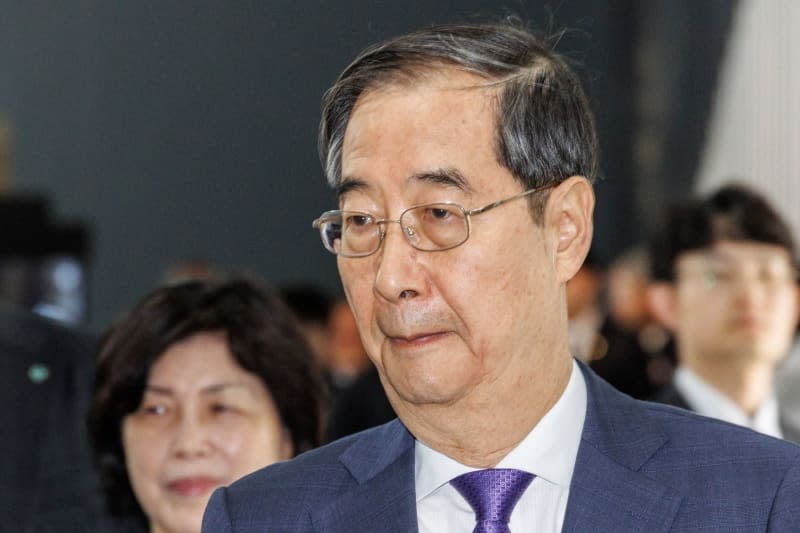South Korea's prime minister offers resignation after election defeat

- Oops!Something went wrong.Please try again later.
- Oops!Something went wrong.Please try again later.
South Korean Prime Minister Han Duck Soo has offered his resignation in response to the clear defeat of the ruling camp in the country's parliamentary elections.
In Wednesday's vote, the liberal opposition won a landslide victory over the ruling conservative party of President Yoon Suk Yeol.
Han personally submitted his resignation request to the president, South Korean broadcaster KBS and national news agency Yonhap reported unanimously on Thursday, citing officials from the presidential office in Seoul.
Key advisers to Yoon and other staff members in his office have also asked for their resignations.
Employees in the National Security Bureau were exempt from this, the reports said. It was initially unclear whether the head of state would accept or deny the requests.
The opposition's success means a considerable weakening of the head of state in domestic politics.
After almost all votes were counted on Thursday, the Democratic Party (DP) of opposition leader Lee Jae Myung was able to strengthen its position as the largest single party in the 300-seat National Assembly.
The DP, together with its smaller sister party the Democratic Alliance of Korea, will hold 175 seats, giving it an absolute majority, according to South Korean broadcasters, citing the state election commission.
The ruling People's Power Party (PPP) and its satellite party garnered 108 seats. According to Yonhap, PPP leader Han Dong Hoon announced his resignation over the result. He wanted to apologize to the citizens on behalf of his party, Han said in Seoul.
Yoon's conservatives suffered a severe defeat for the third time in a row in parliamentary elections in Asia's fourth largest economy. Yoon promised to reform state affairs.
More than 44.25 million citizens were eligible to cast their ballot in Wednesday's vote. According to preliminary figures from the state electoral commission, the turnout was 67%, the highest figure for parliamentary elections in 32 years.

